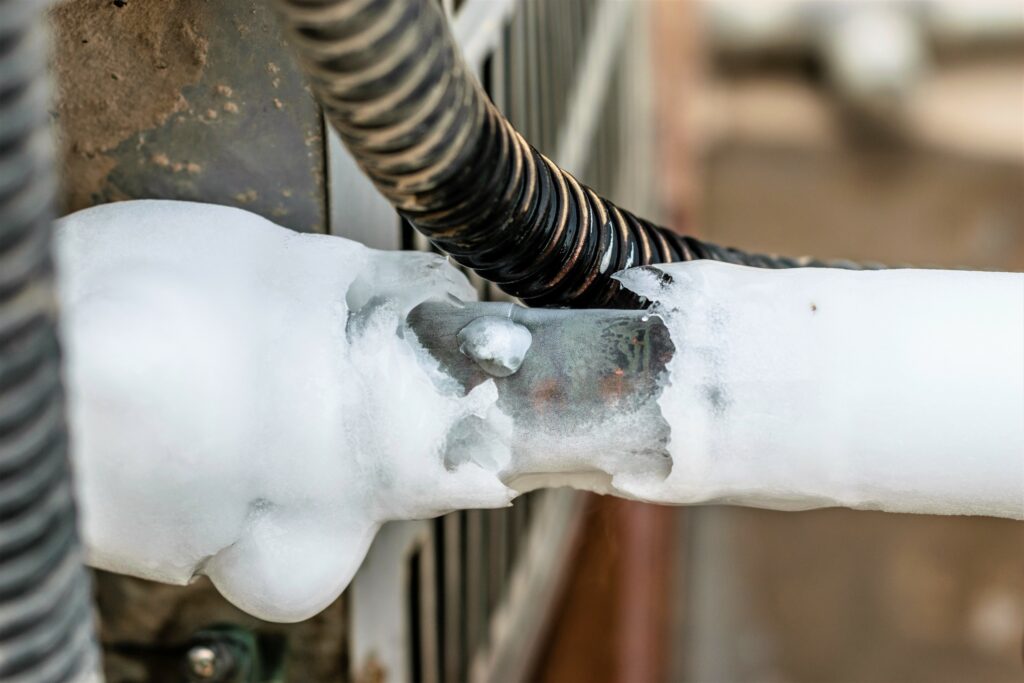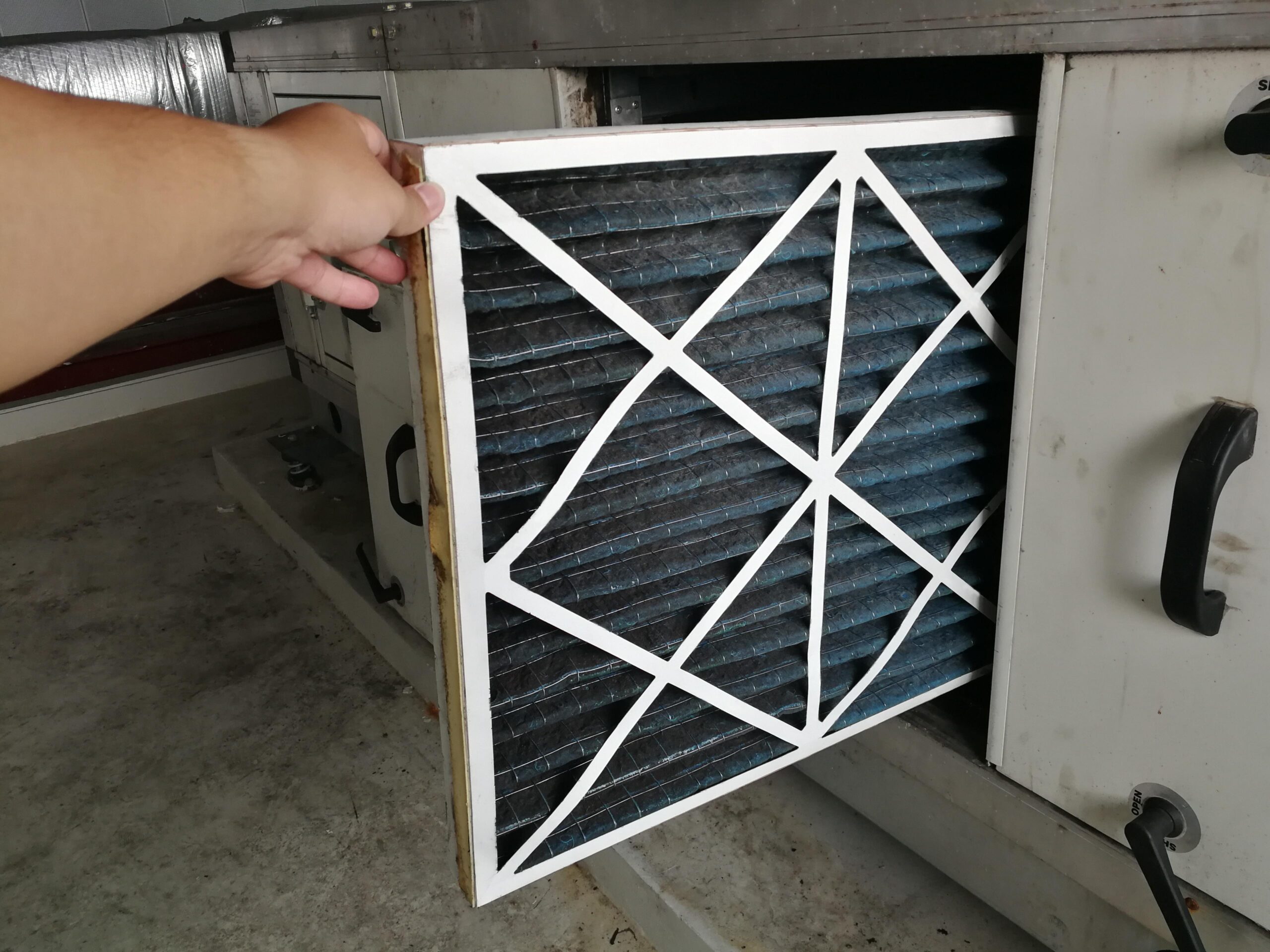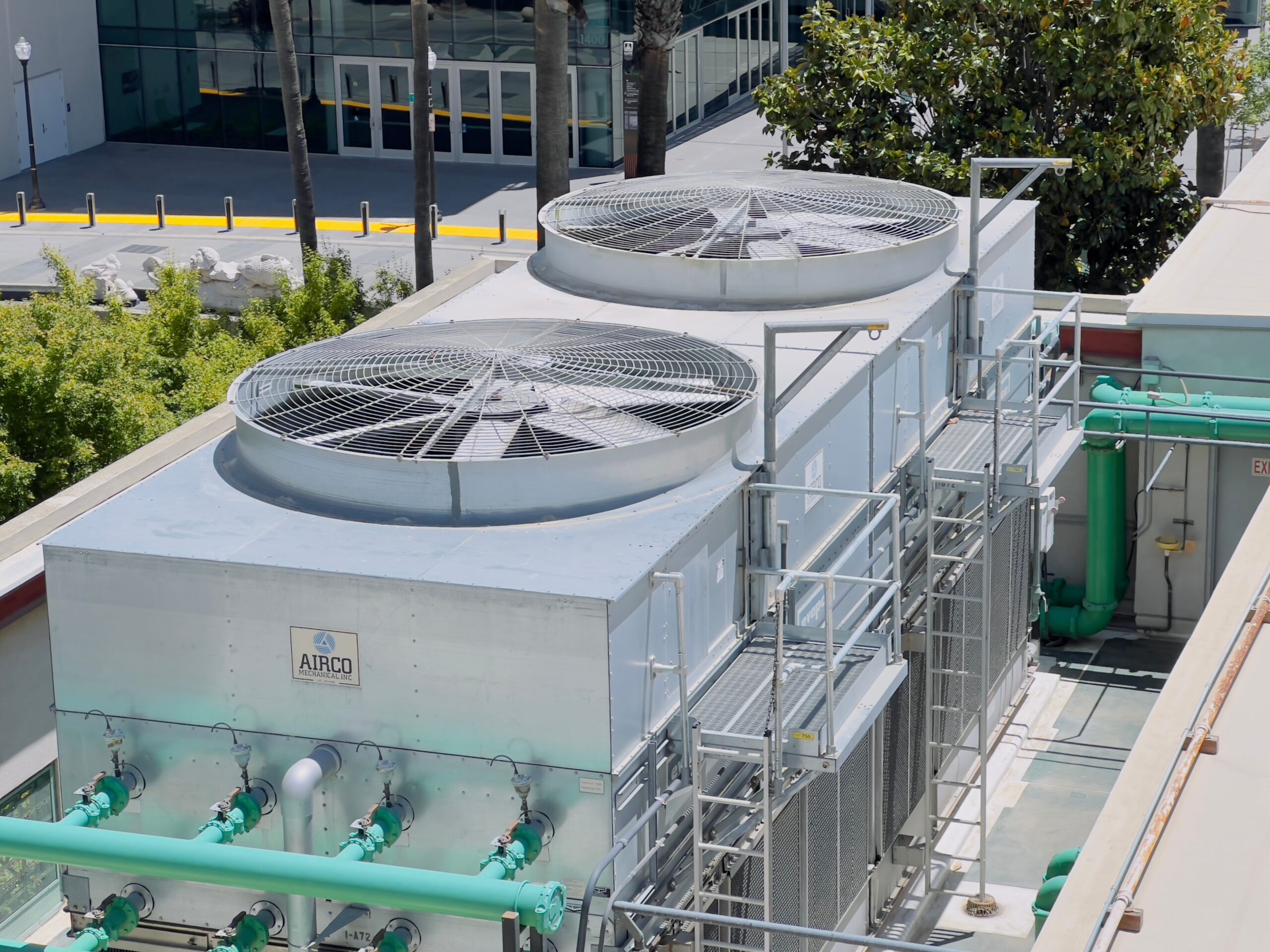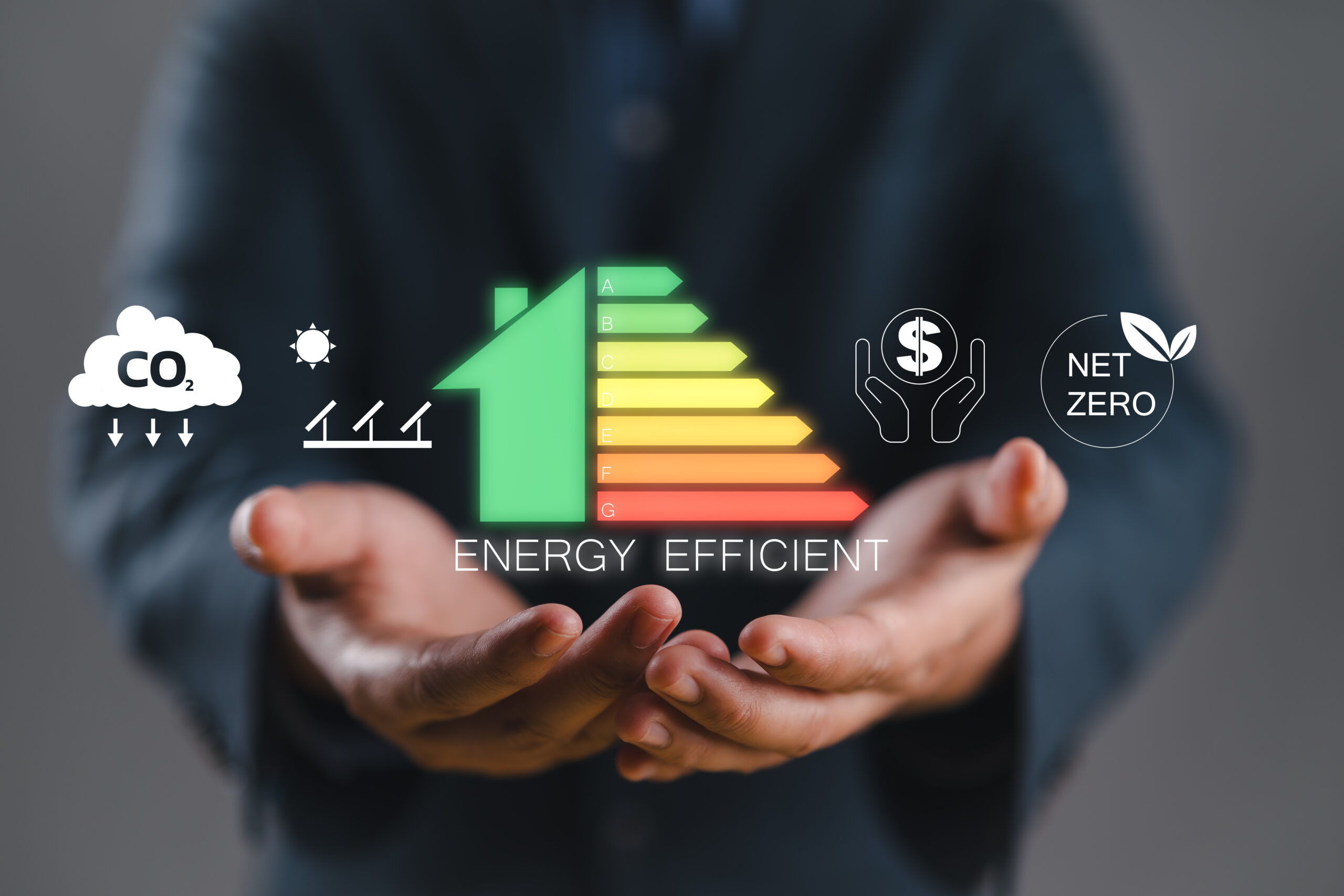Why Is My Heat Pump Iced Up?
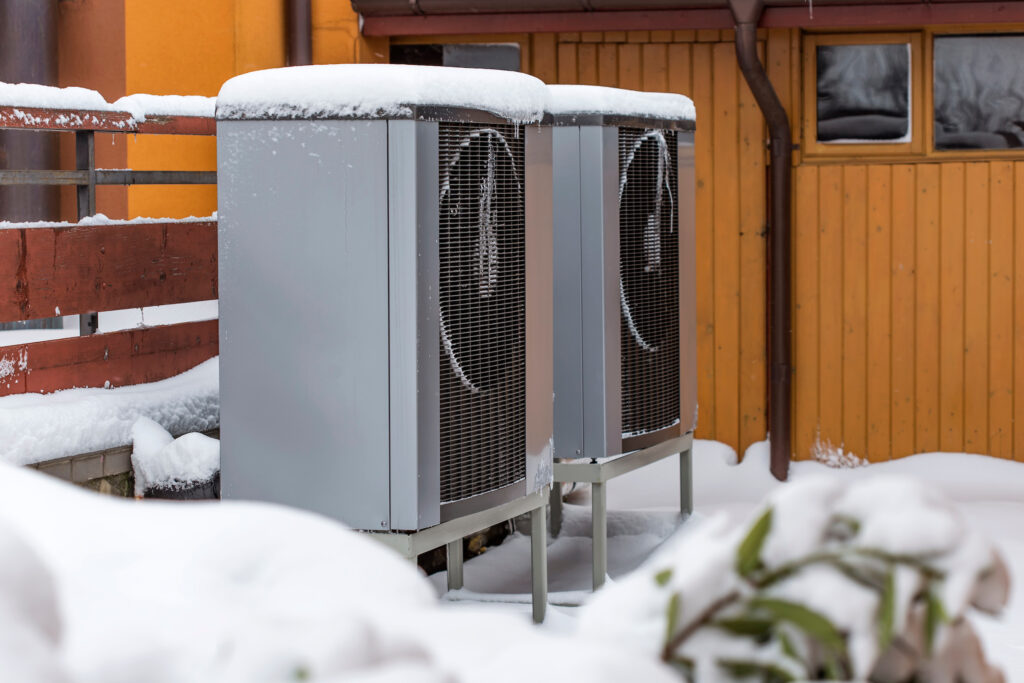
Heat pump systems are popular among homeowners in Allentown, PA, because they’re strong and reliable. They also offer energy-efficiency ratings that far exceed many other systems, especially if they’re routinely serviced and covered under a maintenance agreement. But, great as they may be, heat pumps are still subject to many of the same pitfalls and problems of other popular HVAC systems—including ice and frost formation–no matter the type of heat pump you have.
In this blog, we’ll explore why your heat pump might be iced up and what you can do about it.
Common Causes Of Frost Or Ice On Heat Pumps
Many things can cause frost or ice on a heat pump system. While you can address some of these independently, others will require you to schedule a heat pump service with a professional. Here are some reasons why your heat pump is covered in ice or frost:
- Restrictions in airflow. Airflow restrictions can be caused by a wide range of mechanical issues, from a damaged fan motor to faulty expansion valves.
- Damaged fan belt. When a fan belt becomes loose or worn, it has trouble keeping up with your heat pump’s needs and can cause things to slow to a pace that allows ice to form in the unit.
- A dirty or old air filter. Technically, this falls under a restricted airflow issue since that’s what a dirty filter will cause. However, you can handle this on your own, assuming it’s the actual cause. A simple air filter replacement should set things in order.
- Thermostat settings are too low. Attempting to run the air conditioner at 68 degrees when it’s already the same temperature—or lower—outdoors can cause disparity in your system. That can lead to a lack of air pressure, causing frost to form on your heat pump.
Why is My Heat Pump Iced Up in the Summer?
Homeowners may be puzzled to find their heat pump freezing and covered in ice during hot weather during summer, but this is not an uncommon occurrence. Here’s why your heat pump may be iced up during the summer:
- High humidity and cooling mode: In summer, heat pumps operate in cooling mode to extract the heat from indoor spaces and release it outdoors. When humidity levels are high, the moisture in the air can condense on the cold evaporator coil, leading to frost or ice formation. This is particularly common during the early stages of cooling when the system is still adjusting to temperature changes.
- Clogged air filters and reduced airflow: A common culprit for ice formation in the summer is a clogged or dirty air filter. Reduced airflow caused by a dirty filter can lead to insufficient heat exchange, causing the evaporator coil to become excessively cold and accumulate ice. Regularly changing or cleaning the air filter is a simple yet effective preventive measure.
- Thermostat settings and temperature disparities: Setting the thermostat too low during extremely hot weather can contribute to ice buildup. When the indoor temperature is already at the set point or lower, the heat pump may struggle to maintain proper airflow, resulting in frost on the evaporator coil.
Why is My Heat Pump Iced Up in the Winter?
Heat pumps should be capable of performing optimally in even the most frigid, cold weather. If you find your heat pump covered in ice during winter, it may be due to one of several reasons, including:
- Defrost cycle and outdoor temperatures: Over winter, the heat pump works hard to extract heat from the outdoor air. However, in extremely cold conditions, moisture in the air can freeze on the outdoor coil. This is where the defrost cycle comes into play, as it’s a vital function that periodically reverses the heat pump’s operation to melt the accumulated ice. If the defrost mode is defective, you’ll still have ice on the heat pump.
- Freezing temperatures and outdoor coils: As temperatures drop, the outdoor coil of the heat pump becomes susceptible to freezing. When the coil freezes, it impedes the heat exchange process, causing the system to work less efficiently. The defrost cycle, activated by the outdoor temperature and a sensor on the coil, should kick in to thaw the ice and maintain optimal performance. If the defrost control system does not activate when needed, ice and frost will accumulate on the outdoor coil.
- Refrigerant levels: The heat pump relies on adequate refrigerant levels for optimal operation. Insufficient refrigerant levels can also contribute to ice formation as it reduces the heat pump’s ability to efficiently absorb heat and may end up blowing cold air into the home. This issue requires prompt attention in order to prevent damage to the heat pump.
How Do You Remove Ice From a Heat Pump?
Heat pumps have a defrost routine that circulates heated refrigerant throughout the system. For most issues, the unit will take care of itself. However, if it fails to remove the ice, or if the ice is encasing the heat pump system, you’re going to have to take action. In general, it’s best to schedule a heat pump repair service right away to address the root cause of the issue.
How Do you Fix a Frozen Heat Pump?
Finding your heat pump freezing can be a cause for concern, but taking prompt action can prevent further damage and restore the system to optimal performance. Here’s a step-by-step on what you can do to fix a frozen heat pump:
- Turn off the heat pump: If you notice ice buildup, the first step is to turn off the system. This prevents additional strain on the components and ensures your safety during the troubleshooting process.
- Identify the cause: Determine the root cause of the ice buildup by inspecting the outdoor unit for any visible signs or obstructions.
- Clear obstructions: Ensure the unit is clear to facilitate proper airflow. Gently remove any snow, ice, vegetation, or debris from the outdoor unit. Avoid using any sharp objects that may damage the unit.
- Inspect the air filters: If the air filters are dirty or clogged, replace them with new ones. Clean filters will promote efficient airflow and reduce the risk of future ice buildup. However, this fix would not apply when the system is in heating mode as dirty air filters will not result in frozen coils.
- Wait for thawing: After clearing any obstructions and addressing any filter issues, allow the heat pump to thaw naturally. This may take some time depending on the extent of the buildup, so patience is key.
- Manually remove the ice: If the ice persists or encases the unit, you can gently remove it manually. Use a soft broom or similar tool to carefully break away the ice. Be cautious not to damage the coils or other components.
- Check the defrost control system: Inspect the defrost control system to ensure it functions correctly. If you suspect a malfunction, seek professional assistance, as a faulty defrost control system can lead to recurrent freezing issues.
- Restart the heat pump: Once the ice has melted and you’ve addressed the root cause, you can safely restart the heat pump. Monitor its operation to ensure it continues functioning properly without any signs of refreezing.
- Schedule professional maintenance: To prevent future occurrences of freezing, schedule a professional heat pump repair or maintenance service. HVAC experts can identify and address underlying issues to ensure your heat pump operates efficiently throughout the year.
How Can I Prevent My Heat Pump Coils from Icing Over?
To avoid the inconvenience of a frozen heat pump in any season, there are some preventative measures you can take:
- Schedule regular maintenance: Ensure your heat pump receives professional maintenance to address potential issues and optimize its performance.
- Keep the outdoor unit clear: Remove any snow, ice, or debris from the outdoor unit to allow proper airflow and reduce the risk of ice accumulation.
- Regularly clean or replace air filters: Ensure proper airflow by maintaining clean air filters.
- Monitor thermostat settings: Avoid setting the thermostat too low during extreme weather, as this can contribute to frost formation or strain the system. Keep indoor temperatures comfortable.
By understanding the factors that lead to a frozen heat pump, you can take proactive steps to maintain your system’s efficiency and prevent disruptions to your home’s comfort. If you encounter persistent issues or have concerns about your heat pump’s performance, don’t hesitate to contact an experienced professional.
Heat Pump Services In Allentown, PA
When it comes to the weather in Allentown and the Greater Lehigh Valley area, our team knows that the summers get hot and the winters get frigid. You need your heat pump to be in top shape at all times since any interruption can greatly impact home comfort. That’s why our team offers our customers full heat pump repair and replacement services.
Many common heat pump problems can be avoided altogether by ensuring your system gets the professional care and maintenance checks it needs. You can do this by joining a Maintenance Plan by signing up for a service agreement—in addition to some unique perks!
Need to schedule a heat pump service or heat pump installation in the Allentown, PA area? Give us a call today at 610-596-9967 or contact us online now to learn more about why your heat pump is covered in ice or frost!
Questions or need more information?
Contact Us


We Treat You Like Family
When you choose Jack Lehr Heating Cooling & Electric, you’ll benefit from our:
When you choose Jack Lehr Heating Cooling & Electric, you’ll benefit from our:
- 50+ years of experience
- Our installation and service guarantees
- Top-of-the-line products
- Respect for your home or business
- Financing options
- And much more!

